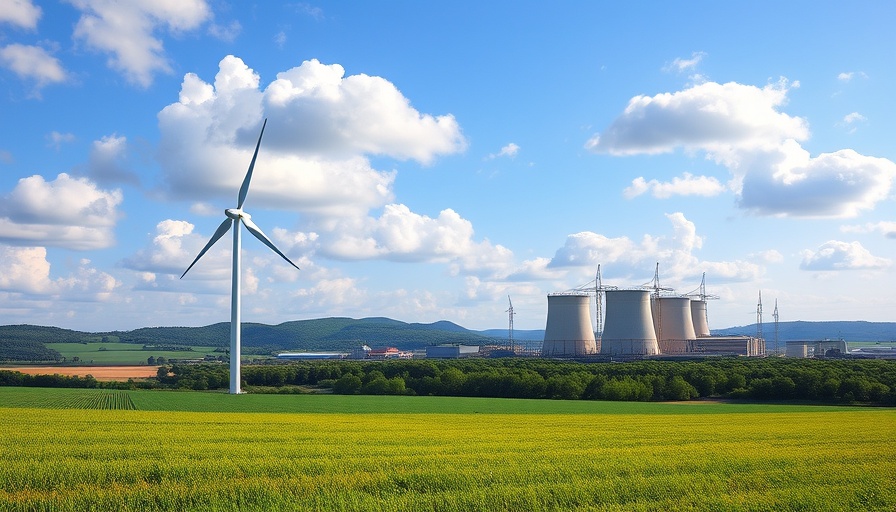
Clean Energy Investments at a Standstill: A Wake-Up Call
As the clean energy sector in the United States grapples with uncertainty, a staggering $14 billion in projects have been either canceled or delayed since the inception of 2025. This alarming figure comes from an analysis by Environmental Entrepreneurs (E2), a nonprofit group that advocates for clean energy business practices. With job losses exceeding 10,000 in low-carbon energy sectors, the ramifications of these cancellations are dire, extending beyond the balance sheets of corporations to touch the lives of workers and communities relying on these initiatives.
Understanding the Impact of Legislative Changes
The cancellations have coincided with legislative shifts aimed at altering the landscape of clean energy funding, specifically surrounding federal tax credits that were set in place to foster growth in this vital sector. April of this year saw the cancellation of $4.5 billion in plans for electric vehicles (EV), batteries, and wind energy projects. This upheaval was largely fueled by events leading to the prospective passage of the One Big Beautiful Bill Act, a controversial tax and spending package that threatens to dismantle incentives established for clean energy development.
Analyzing the Reasons Behind Investment Anxiety
The anxiety surrounding investments in clean energy can be traced back to various factors, including fears of economic repercussions from proposed policy changes. Michael Timberlake from E2 aptly calls out these fears, stating, “Now is not the time to raise taxes on clean energy,” emphasizing that businesses are already feeling the weight of uncertainty weighing heavily on their decision-making processes. The core of the issue lies in how these legislative factors can stifle innovation and inhibit economic growth in a sector paramount to meeting the United States' energy needs.
The Geographical Landscape: A Focus on Republican Districts
Interestingly, analysis shows that Republican congressional districts, which stand to benefit significantly from clean energy tax credits, are the areas most severely affected by cancellations. In these regions alone, over 13,000 jobs and more than $12 billion in projects have been scrapped. E2's Executive Director, Bob Keefe, lamented how the prevailing political focus on fossil fuels and traditional energy sources, such as coal, poses detrimental effects on prospective clean energy investments. It’s a paradox that brings into question the long-term strategy of local and national leaders.
A Future Uncertain: Navigating Challenges
The fear of escalating job losses in clean energy doesn’t only signify a loss in economic terms; it illustrates a slowdown in the trajectory toward a more sustainable future. As Timberlake notes, if the proposed tax plan becomes a reality, construction and investments may cease across the board, leading to a nationwide stall in developing the clean energy infrastructure vital for combating climate change.
What Lies Ahead for Clean Energy?
Looking forward, we face a crucial crossroads; legislative decisions made today will undoubtedly determine the pace of the clean energy economy for years to come. Stakeholders from various sectors are imploring Congress to reverse this trajectory of declining investments to preserve both jobs and the environment, paving the way for innovative solutions to our energy consumption challenges. Without action, the consequences could spell disaster for both the economy and the ecological balance we strive to nurture.
It is imperative for individuals, businesses, and lawmakers alike to recognize the significant interactions at play between policy and clean energy investments. As we advocate for sustainable practices, we must also demand transparency and accountability from our elected officials—ensuring that our energy future aligns with the ideals of growth, sustainability, and economic prosperity.
 Add Row
Add Row  Add
Add 



 Add Row
Add Row  Add
Add 

Write A Comment